 Dr. Regi George and Dr. Lalitha Regi are originally from Kerala. Dr. Regi specialised as an anaesthesiologist, while Dr. Lalitha focused on gynaecology. Following the completion of their studies, they embarked on their professional journeys at Gandhigram Kasturba Hospital. It was during this time that they encountered Gandhiji’s principles of self-sustained communities and Gram Swaraj.
Dr. Regi George and Dr. Lalitha Regi are originally from Kerala. Dr. Regi specialised as an anaesthesiologist, while Dr. Lalitha focused on gynaecology. Following the completion of their studies, they embarked on their professional journeys at Gandhigram Kasturba Hospital. It was during this time that they encountered Gandhiji’s principles of self-sustained communities and Gram Swaraj.
Inspired by these ideals, the couple was drawn to the notion of implementing such concepts in the field of healthcare. For this, they chose Sittilingi Valley, a region where 95 per cent of the people are tribals. Nestled between the Kalrayan and Sitheri Hills, this area is almost completely cut off from the rest of the world. Dr. Regi George and Dr. Lalitha Regi resolved to bring this transformative approach to the underserved tribal population of Sittilingi Valley.
Tribal Health Initiative (THI)
The doctor couple formed the Tribal Health Initiative in September 1993. They launched an outpatient facility in a remote forested valley, courtesy of a modest hut built for them by the local tribals in Sittilingi village, Dharmapuri District in Tamil Nadu. The infant mortality rate in the area was a distressing 147/1000, with a significant number of mothers succumbing during childbirth.
 In the ensuing ten years, the Regis successfully reduced the infant mortality rate to an impressive 20 per 1000 by empowering the local population with self-care knowledge. They achieved a milestone of zero maternal mortality for more than 15 years. Gradually, the work expanded to deal with the determinants of health which included organic farming and community development.
In the ensuing ten years, the Regis successfully reduced the infant mortality rate to an impressive 20 per 1000 by empowering the local population with self-care knowledge. They achieved a milestone of zero maternal mortality for more than 15 years. Gradually, the work expanded to deal with the determinants of health which included organic farming and community development.
The Regis understood that to attain self-reliance in health, it was necessary to train and empower local girls and women. Under THI, they introduced the Health Worker Training. It is a two-year residential programme for tribal girls with a minimum educational qualification of Std XII. THI has now shifted to a basic Staff Nurse Course which is recognised by the Indian Nursing Council. Graduates from this programme, serving as health workers, are incorporated into the hospital and visit remote villages to render their service, treat minor illnesses and share their health knowledge.
Initially, the people of the area faced multiple challenges as the nearest hospital nearby was 50 km away. Emergency surgical cases required a journey of 100 km to Salem. To overcome these challenges, the Regis established the Tribal Hospital in 1997. Today, it is a full-fledged 35-bed hospital with a labour room, a neonatal care room, an emergency room, an operation theatre, and an intensive care unit (ICU) that operates year-round. The hospital is a lifeline for the community. It serves more than 35,000 patients annually – admitting and treating about 1800 in-patients, and conducting about 800 surgeries and 800 deliveries a year.

Health Workers and Auxiliaries
 The Regis understood that to attain self-reliance in health, it was necessary to train and empower local girls and women. Under THI, they introduced the Health Worker Training. It is a two-year residential programme for tribal girls with a minimum educational qualification of Std XII. THI has now shifted to a basic Staff Nurse Course which is recognised by the Indian Nursing Council. Graduates from this programme, serving as health workers, are incorporated into the hospital and visit remote villages to render their service, treat minor illnesses and share their health knowledge. They also plan and implement community health programmes.
The Regis understood that to attain self-reliance in health, it was necessary to train and empower local girls and women. Under THI, they introduced the Health Worker Training. It is a two-year residential programme for tribal girls with a minimum educational qualification of Std XII. THI has now shifted to a basic Staff Nurse Course which is recognised by the Indian Nursing Council. Graduates from this programme, serving as health workers, are incorporated into the hospital and visit remote villages to render their service, treat minor illnesses and share their health knowledge. They also plan and implement community health programmes.
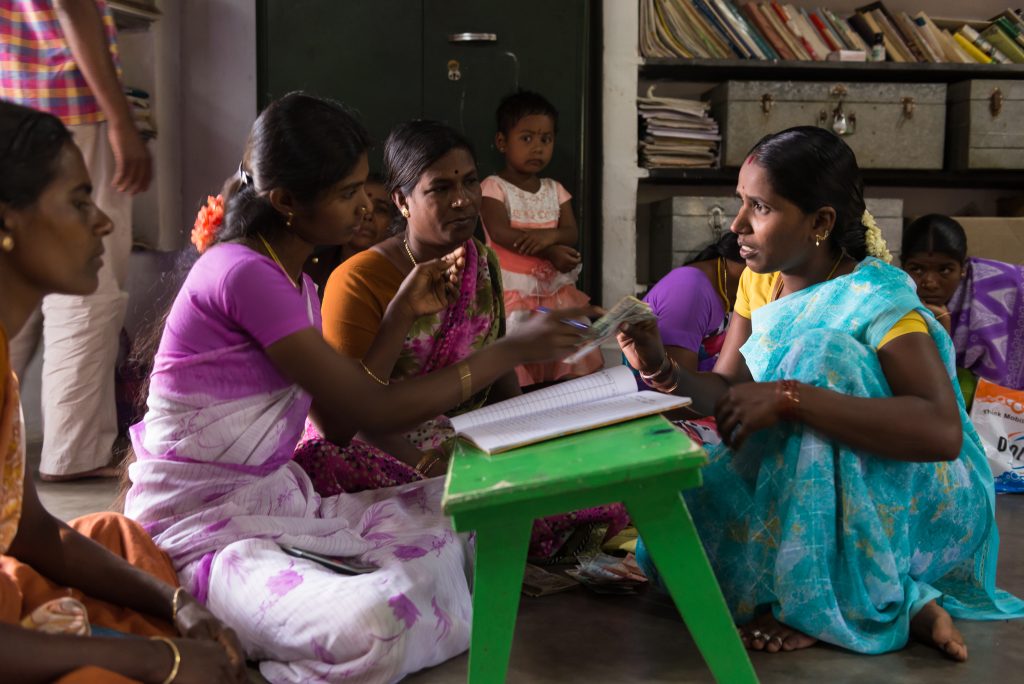 Dr. Regi and Dr. Lalitha also introduced another cadre of Health Auxiliaries, consisting of 25 tribal women from 25 villages, who were selected by their communities for training. Despite being minimally literate, these Health Auxiliaries possess essential skills such as weighing babies, registering births and deaths, educating villages on nutrition and sanitation, and treating common ailments like diarrhoea and respiratory illnesses. They are the cornerstone of the THI health programmes, and they cater to about 15,000 tribals in remote villages. With new initiatives like hypertension care, they now play a key role as community development facilitators.
Dr. Regi and Dr. Lalitha also introduced another cadre of Health Auxiliaries, consisting of 25 tribal women from 25 villages, who were selected by their communities for training. Despite being minimally literate, these Health Auxiliaries possess essential skills such as weighing babies, registering births and deaths, educating villages on nutrition and sanitation, and treating common ailments like diarrhoea and respiratory illnesses. They are the cornerstone of the THI health programmes, and they cater to about 15,000 tribals in remote villages. With new initiatives like hypertension care, they now play a key role as community development facilitators.
A team from the hospital visits each of the 25 villages every month conducting antenatal checkups and under-5 clinics and health education sessions. These visits have a profound impact on the villages with antenatal check-ups showing a remarkable improvement of up to 95 per cent and malnutrition witnessing a reduction of 80 per cent.
Through these consistent efforts, THI is not only addressing immediate healthcare needs but also fostering positive transformations in the overall well-being of the tribal communities.
Sustainability and Self-Reliance
 In 2004, the Regis completed ten years of work and they were contemplating their next step. The year was also the 75th anniversary of the Dandi March.
In 2004, the Regis completed ten years of work and they were contemplating their next step. The year was also the 75th anniversary of the Dandi March.
To rediscover the community, the team did a padayatra to all the villages and discussed with the villagers what they  and THI could do together to make their lives better. The first offshoot of the padayatra was initiating organic farming.
and THI could do together to make their lives better. The first offshoot of the padayatra was initiating organic farming.
THI had formed farmers’ groups in the villages and helped them in sustainable organic agriculture and marketing the produce. To add value to the local 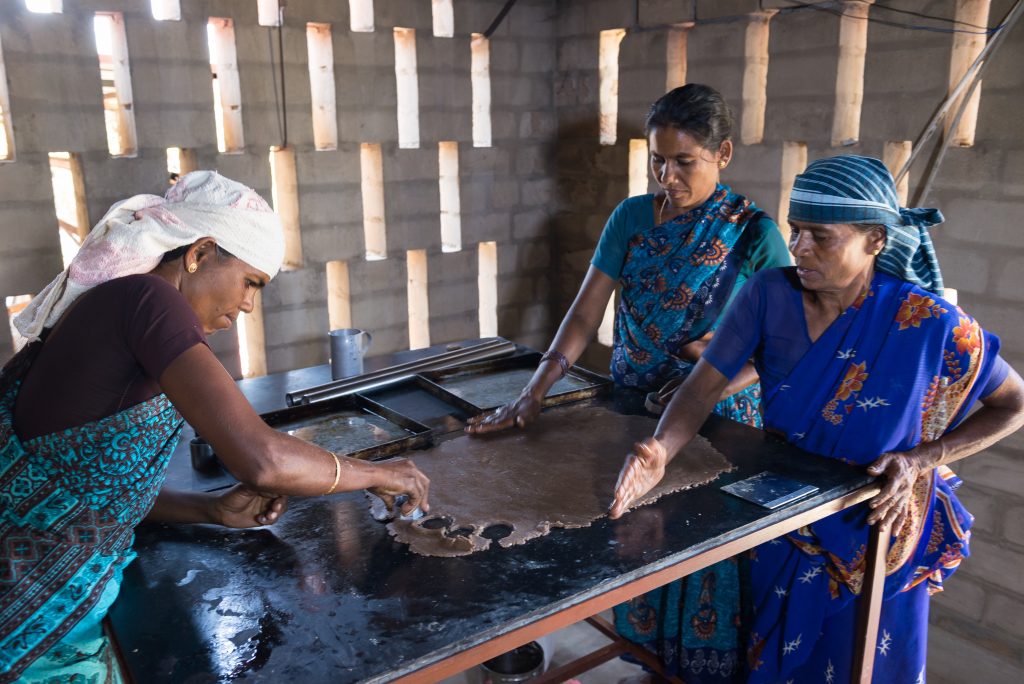 produce for a better profit, the women groups collectively sold their produce under the brand name SVAD. The farmers also formed a producer company called SOFA (Sittilingi Valley Organic Farmers Association), boasting a membership of 700. A Women Entrepreneur Society with about 500 women was also formed, benefiting about 1200 families. SVAD, SOFA and the Women Entrepreneur Society had a turnover of close to Rs 2.5 Crores in 2022.
produce for a better profit, the women groups collectively sold their produce under the brand name SVAD. The farmers also formed a producer company called SOFA (Sittilingi Valley Organic Farmers Association), boasting a membership of 700. A Women Entrepreneur Society with about 500 women was also formed, benefiting about 1200 families. SVAD, SOFA and the Women Entrepreneur Society had a turnover of close to Rs 2.5 Crores in 2022.
The doctor couple started working on reviving the dying craft of the Lambadis (resettled gypsies). They took up this work in two Lambadi villages. About 70 women have revived their almost extinct embroidery skills that generations before them were doing. They are reaping profits from this dying art and can now support themselves financially. They now make products for the Indian and foreign markets – taking pride in their art and generating money in the process. Another ten women are engaged in tailoring and other activities. A recent venture has trained 50 tribal women in high-end fashion tailoring, with plans to form a society to seek and fulfil orders.
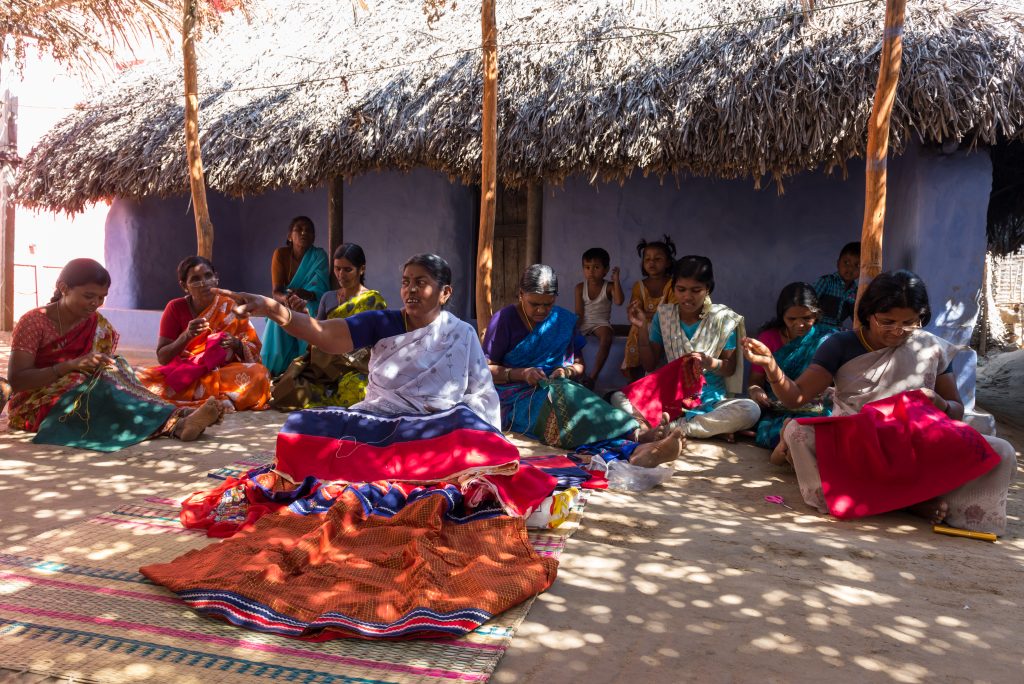
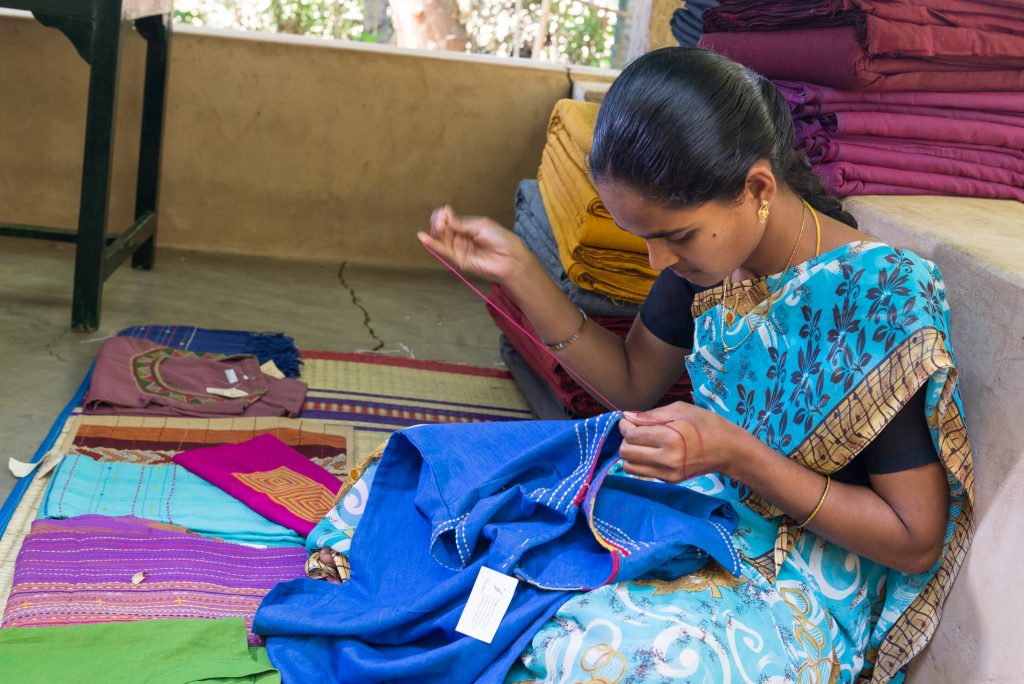
They sensitised the people in this remote tribal valley about local governance, the Panchayati Raj system, and Gram Swaraj. In the last Panchayat elections, the Farmers Collective selected one of the senior nurses in the hospital to be their candidate. She won by a comfortable margin and is now the President of the Panchayati Raj. This successful example showcases how local communities can effectively govern and address their needs independently, transcending political affiliations.
For the last ten years, with a new road connecting the Kalrayan Hills nearby, Dr. Regi George and Dr. Lalitha Regi noticed that many tribals coming from remote villages in the hills have the same diseases and problems initially seen in the Sittilingi Valley. To tackle this, THI held a weekly OPD and a community health programme on the same lines as Sittilingi. THI hopes to have a full-fledged modern OPD and staff to cater to the health needs of the Kalrayan Hills tribals throughout the week.
To boost income-generating capacities in the Sittilingi Valley, THI aims to develop local cottage industries utilising indigenous materials and expertise.
With better healthcare and modern culture coming in, THI introduced an annual Rs. 200/- insurance scheme, catering especially to neglected elderly citizens. THI has also instituted health insurance schemes for farmers and artisans.
Governance
 For four years, the region experienced extreme drought which severely impacted the farmers. THI felt they needed to do something about it. They expanded their initiative to include watershed and water management in the Sittilingi Valley.
For four years, the region experienced extreme drought which severely impacted the farmers. THI felt they needed to do something about it. They expanded their initiative to include watershed and water management in the Sittilingi Valley.
They sensitised the people in this remote tribal valley about local governance, the Panchayati Raj system, 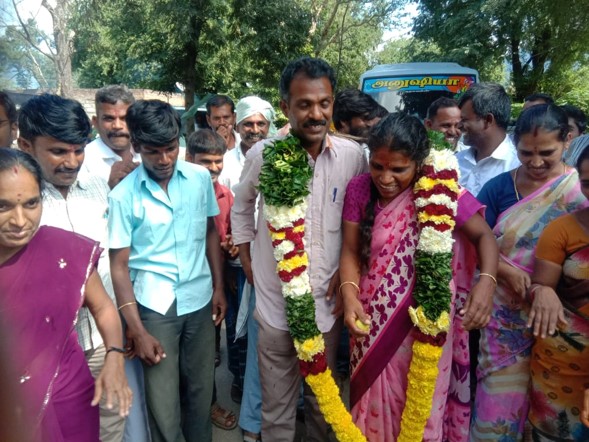 and Gram Swaraj. In the last Panchayat elections, the Farmers Collective selected one of the senior nurses in the hospital to be their candidate. She won by a comfortable margin and is now the President of the Panchayati Raj. This successful example showcases how local communities can effectively govern and address their needs independently, transcending political affiliations.
and Gram Swaraj. In the last Panchayat elections, the Farmers Collective selected one of the senior nurses in the hospital to be their candidate. She won by a comfortable margin and is now the President of the Panchayati Raj. This successful example showcases how local communities can effectively govern and address their needs independently, transcending political affiliations.
THI’s commitment to holistic community development is evident in its multifaceted approach, acknowledging the interconnectedness of health, agriculture, and governance in fostering resilient and self-sufficient communities.
The doctor couple is an ideal role model for young medical professionals. Through their enduring intervention, numerous tribes in the area are now on the path to self-sufficiency. They have not only served the communities in the area but are deeply committed to following core Gandhian values and promoting them in the communities. They have successfully empowered the village people to learn, and govern themselves better by organising and taking group decisions.
Impact
To date, THI is operative in five districts – Dharmapuri, Salem, Kallakurichi, Tiruvannamalai and Krishnagiri.
Project |
Impact |
Outpatients |
6,28,400 |
Inpatients |
28,574 |
Surgeries |
10,132 |
Deliveries |
8112 |
Health Sector |
26+ tribal hamlets/15,000 population |
Farming Sector |
48 tribal hamlets/20,000 population |
Sittilingi Organic Farmers’ Association (SOFA) |
700 farmers |
Porgai Artisans’ Association |
60 artisans |
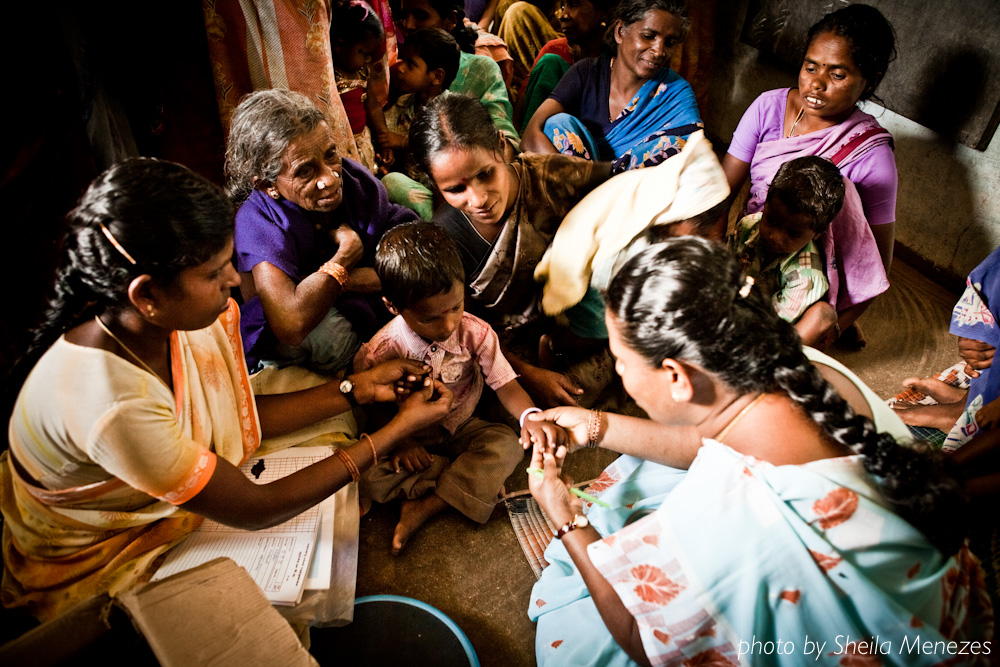
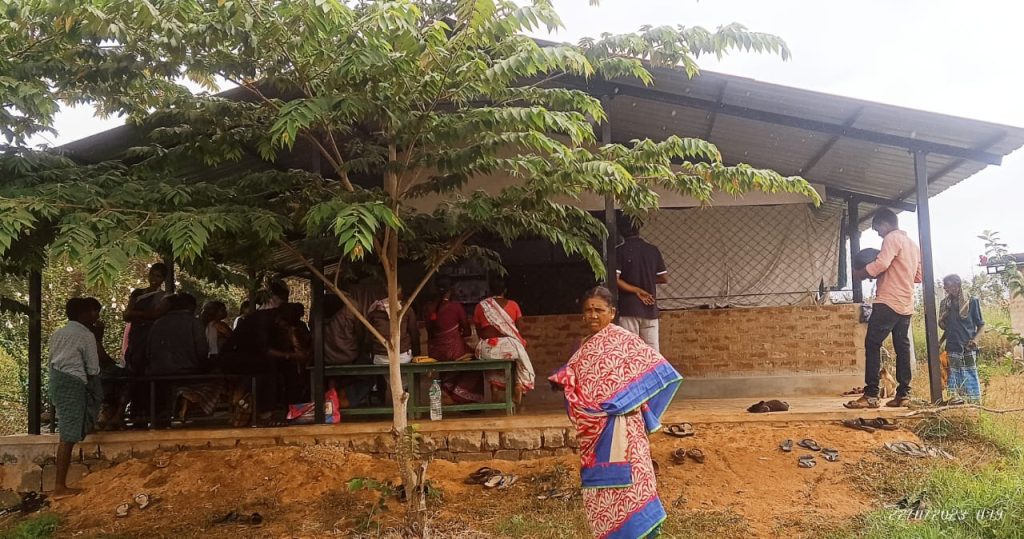
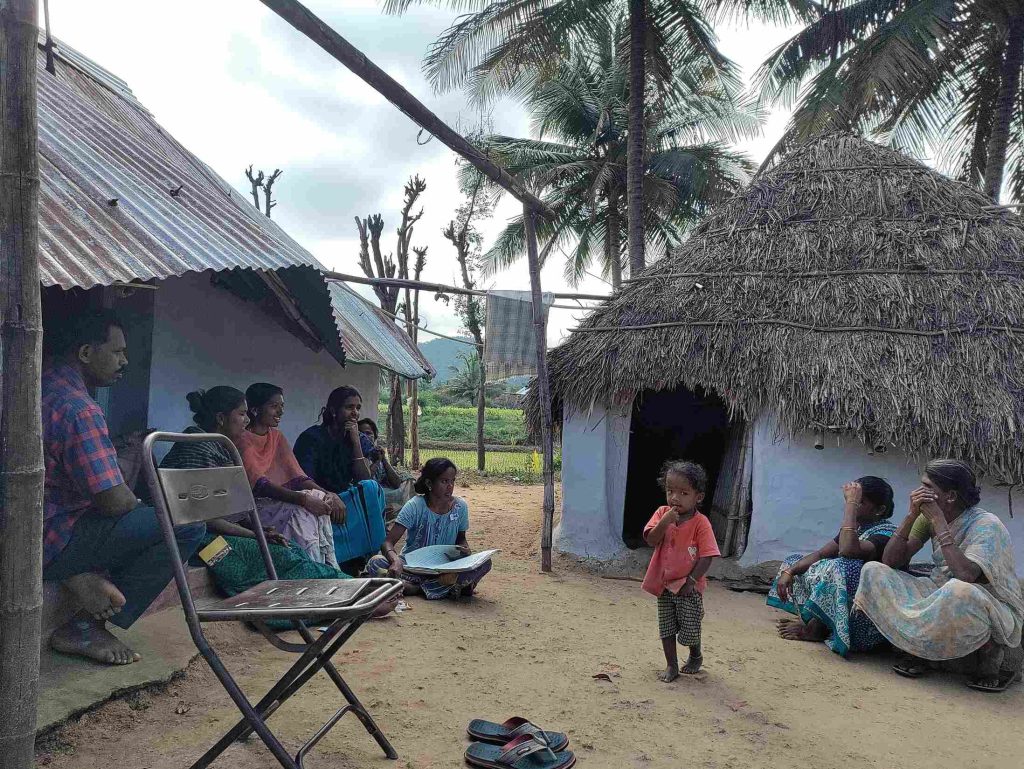
Dr Regi George and Dr Lalitha Regi believe that Gram Swaraj is achievable even if one works in health, education, or livelihoods. Their approach centres on carrying the community along with their work, empowering individuals and enhancing their capacities. This, they believe, is the key to fostering true self-reliance.
 The doctor couple is an ideal role model for young medical professionals. Through their enduring intervention, numerous tribes in the area are now on the path to self-sufficiency. They have not only served the communities in the area but are deeply committed to following core Gandhian values and promoting them in the communities. They have successfully empowered the village people to learn, and govern themselves better by organising and taking group decisions.
The doctor couple is an ideal role model for young medical professionals. Through their enduring intervention, numerous tribes in the area are now on the path to self-sufficiency. They have not only served the communities in the area but are deeply committed to following core Gandhian values and promoting them in the communities. They have successfully empowered the village people to learn, and govern themselves better by organising and taking group decisions.
What began as a health-centred initiative in this remote tribal settlement some decades ago has led to a positive transformation impacting every aspect of life. Dr. Regi George and Dr. Lalitha Regi’s exemplary and unwavering dedication has resulted in a thriving, vibrant, rural community exemplifying Gandhian principles for sustainable development.
Dr. Regi George and Dr. Lalitha Regi received the Jamnalal Bajaj Award for Constructive Work 2023.

